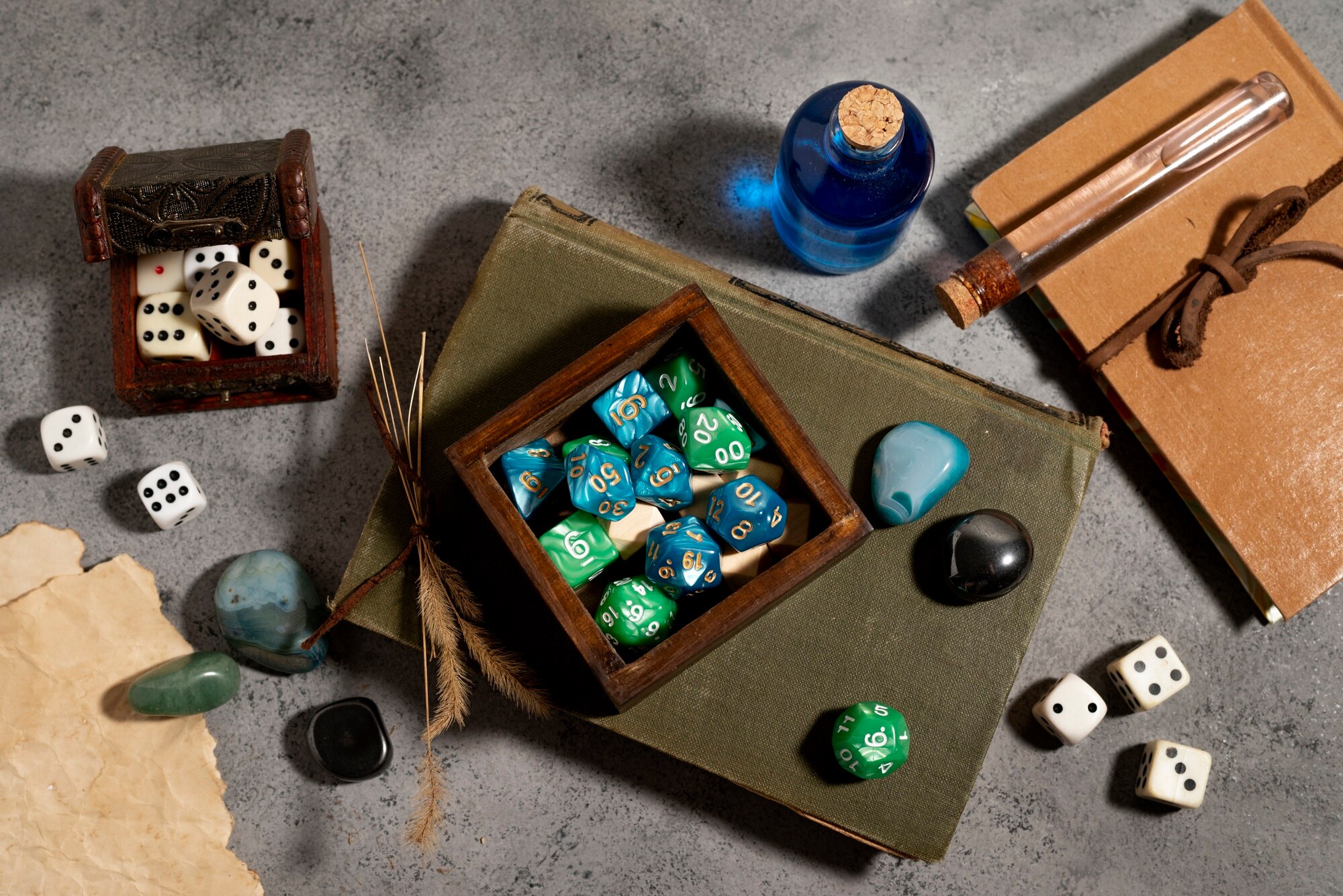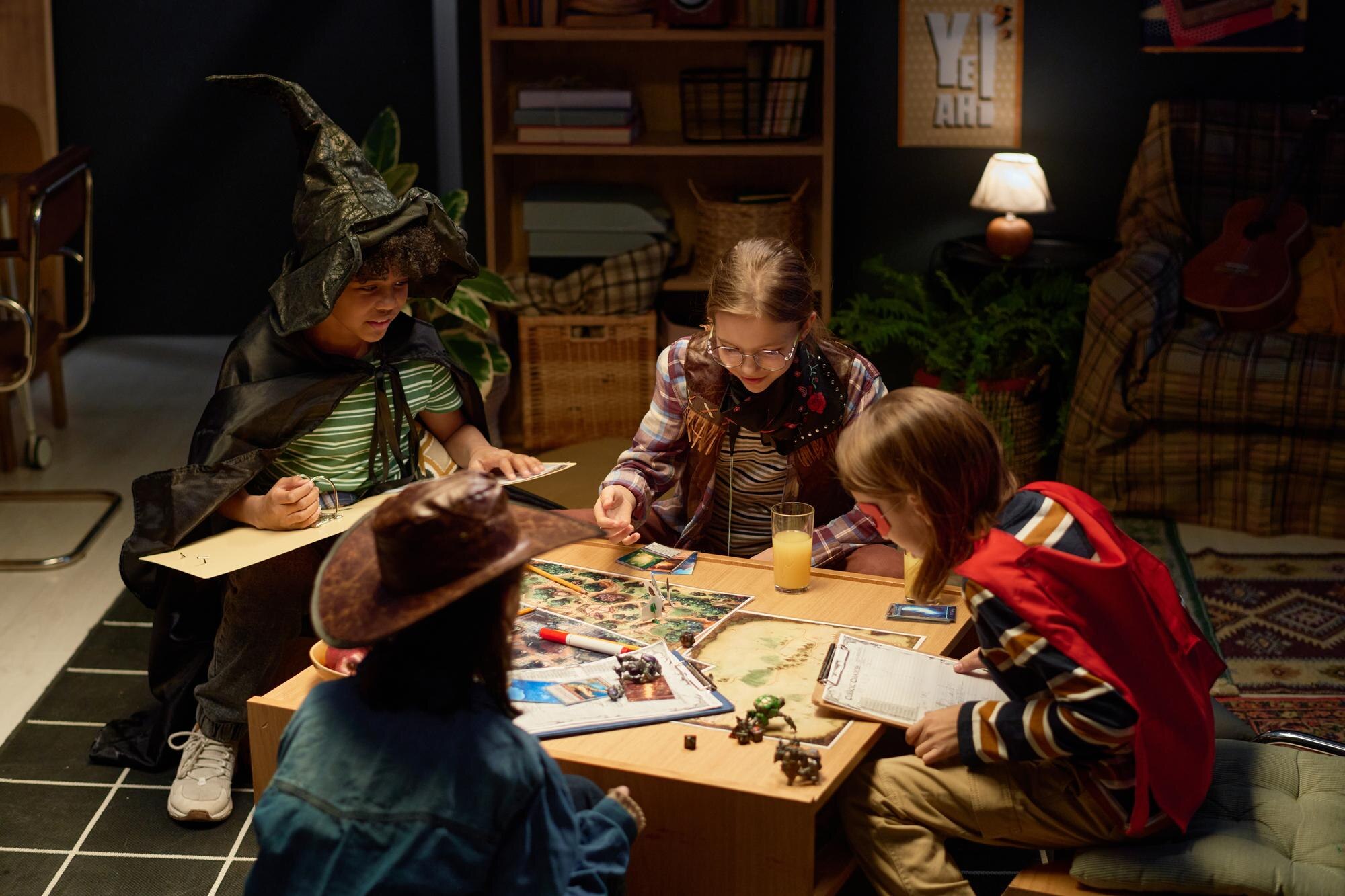Level Up Your Reading: The Magic of Merging Gaming and Literature
Welcome, fellow adventurers and storytellers! 🎲📚 If you’re like me, a passionate fan of both gaming and literature, you’re in for a treat as we explore the enchanting fusion of RPG storytelling and fantasy adventure books. This magical blend creates an immersive experience where stories come alive, and readers become active participants in the narrative. Whether you’re slaying dragons in a Dungeons & Dragons campaign or getting lost in the pages of a thrilling tale, there’s something undeniably captivating about merging these two worlds. So, grab your dice and your favorite book, and let’s set off on an exhilarating quest together with Kenneth York books—where creative storytelling meets epic adventures! 🌟✨ Learn more about this exciting intersection here.
The Fusion of Gaming and Literature

In recent years, the boundaries between gaming and literature have become increasingly blurred. This exciting intersection opens up new avenues for storytelling and engagement. By merging these two creative domains, we find a treasure trove of opportunities to enrich narratives and enhance the reader’s experience. Let’s explore how RPG storytelling and fantasy adventure books play pivotal roles in this fusion.
Thrilling RPG Storytelling Adventures
Role-playing games (RPGs) like Dungeons & Dragons are more than just dice and dragons. They offer a dynamic way to dive into storytelling. RPG storytelling provides players with the unique ability to shape the narrative through their characters’ choices. This interactive element makes stories feel alive and personal. As players navigate through quests, they become part of a living tale, creating memorable experiences at every turn.
A key component of RPG storytelling is the collaborative nature of the adventure. Players work together to overcome challenges, building a collective narrative. This cooperation fosters a sense of camaraderie and shared experience. The journey isn’t just about reaching a destination; it’s about the stories created along the way. This aspect can also be found in literature, where characters embark on epic quests.
Real-world examples show how RPGs can foster creativity. For instance, campaigns often inspire players to write their own stories, further blurring the lines between gaming and literature. This creative outlet encourages players to explore new worlds and characters beyond the game table. You can learn more about how RPGs promote literacy through interactive storytelling here.
Captivating Fantasy Adventure Books
Fantasy adventure books transport readers to magical realms filled with wonder and excitement. These books often incorporate elements familiar to RPG fans, such as mythical creatures, epic battles, and grand quests. Fantasy literature serves as a bridge between the imaginative worlds of gaming and traditional storytelling. These books captivate both gamers and readers alike, offering a rich tapestry of narratives.
Authors like Kenneth York craft stories that reflect the same immersive qualities found in RPGs. By weaving intricate plots and developing compelling characters, these books engage readers on multiple levels. The allure lies in the detailed world-building and the exploration of complex themes, echoing the depth found in well-crafted RPG campaigns.
Fantasy books often inspire gamers and vice versa. Many game developers draw inspiration from literary works, incorporating elements into their games. This mutual influence enriches both fields, resulting in a vibrant exchange of ideas. For a deeper dive into the influence of literature on gaming, check out this insightful article here.
Creative Storytelling Techniques

The fusion of gaming and literature isn’t just about combining genres; it’s about exploring innovative storytelling techniques. These techniques can transform narratives into more engaging and interactive experiences. Let’s delve into how books can become interactive and how roleplaying games serve as potent storytelling tools.
Interactive Narratives in Books
Interactive narratives in books invite readers to become active participants in the story. Interactive books often include choices that influence the plot, similar to decision-making in RPGs. This approach allows readers to engage with the story on a deeper level, fostering a personal connection to the narrative. By offering multiple paths, authors create a unique reading experience.
To create an interactive book, authors can follow a few steps:
-
Develop branching storylines: Craft multiple paths for readers to explore.
-
Include decision points: Allow readers to make choices that affect the outcome.
-
Provide diverse endings: Offer various conclusions based on the reader’s choices.
Real-world examples highlight the growing popularity of interactive storytelling. Books like “Choose Your Own Adventure” have paved the way for modern iterations. These narratives enrich the reading experience by empowering readers with agency. For more insights into interactive storytelling, refer to this detailed study here.
Roleplaying Games as Story Tools
Roleplaying games (RPGs) offer unique tools for storytelling that can be leveraged across different mediums. RPGs allow players to explore intricate storylines through character-driven gameplay. These games provide a framework for creating immersive narratives that captivate audiences. The flexibility of RPGs makes them adaptable to various storytelling styles.
Key features of RPGs that enhance storytelling include:
-
Character development: Players build rich backstories for their characters.
-
World-building: Game masters craft detailed worlds for players to explore.
-
Dynamic storytelling: The story evolves based on player interactions.
Case studies show the impact of RPGs on storytelling methods. For instance, many writers use RPGs as a tool for brainstorming and developing plotlines. This approach allows for experimentation with narrative structures and character arcs. For a comprehensive analysis of RPG storytelling techniques, check out this resource here.
By merging the best of gaming and literature, we unlock new dimensions of creative storytelling. Whether through interactive narratives or roleplaying games, the possibilities for immersive experiences are endless. Join the adventure and explore the captivating worlds of Kenneth York books! 🌟📚

